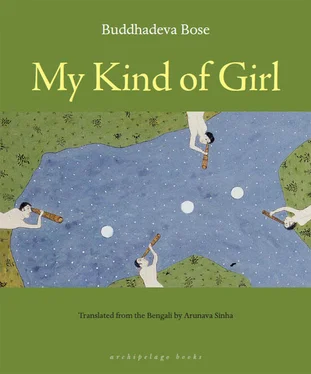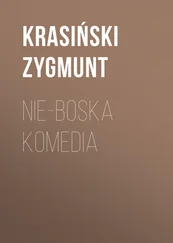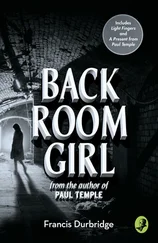Asit said, “That’s inevitable. Have you seen the way she looks?”
I protested, “What do you mean? She looks beautiful, very beautiful.”
“However beautiful she may be, these last few days. .”
I raised my voice and said, “This is the time when she’s looked the most beautiful!”
The sharpness of my tone probably took them by surprise; they didn’t say anything else.
The more days that passed, the more beautiful she appeared to me; her body seemed to be possessed of an amazing beauty. One day I couldn’t help but tell her as much. Last year, when they returned from Ranchi, all of heaven had fit into a small train compartment. On just such a sun soaked winter day, now, she suddenly said, “Bikash, I see you staring at me far too often these days.”
“You’re very beautiful these days, that’s why.”
“Wasn’t I beautiful before?”
“Even more now.”
Mona Lisa frowned and looked outside. She said, “You people really love me, don’t you. But please don’t look at me that way, it makes me uncomfortable. . Oh, how sunny it is outside!”
I got up and shut the window.
“I’ll take a nap, all right?”
A sheet was folded near her feet, I unfolded it and said, arranging it over her, “You’re well these days, aren’t you?”
“Of course I am.”
On her face I saw hope mixed with courage, fear with hope, patience with fear. Moving the sheet so that her feet remained uncovered, I said, “Why did Hiren-babu leave?”
“Doesn’t he have work to do?”
“When is he coming again?”
“In good time.”
“Why did he have to go — I wish he hadn’t.”
“Enough now, never mind all that,” she said, turning on her side and shutting her eyes. Her eyes closed, she said, “I’m going to sleep,” and immediately fell asleep. Poor thing, couldn’t sleep nights, how tired she must be. I said a prayer, I don’t know to who: may everything go well for her, may everything go well for her.
In bed that night I thought, she might be in pain now, walking around her room, the darkness of the howling jackal outside and seven or eight hours still left of night. Why could I not do anything, why could I not go to her right now, put her to sleep by some miracle? To see suffering and not be able to do anything about it — was this man’s fate? Were we really bound hand and feet, with no other recourse? These thoughts drove sleep away, gave me lines of poetry. As soon as I got up I saw the light of the new moon outside; Tara Kutir could be seen indistinctly, like a dream, like a memory. I didn’t look for long, I lit a lantern and sat amidst the kerosene fumes and mosquito bites to write poetry.
Every day went this way; sleep deserted my nights. I stayed awake with her; I was her bodyguard, I would protect her from all grief. I imagined myself as a god of sorts as I thought this way, amazing myself with the remarkable lines of poetry that came to mind as a result.
On such a night — it was nearly two in the morning — my hand suddenly shook as I wrote. I heard someone calling me outside, “Bikash, Bikaaa. . sh!” I waited a little, and heard the same call again, in a muted voice. Opening the door, I came outside to find the two of them standing, like shadows, outside it.
The moon wasn’t up yet that night, probably didn’t come up at all, as it was close to new moon. The sky sparkled with stars, the three of us stood in that stardust’s glow, on that winter’s night, in the field, with beating hearts.
“Well, Asit? What news, Hitangshu?”
“It’s started, probably,” Hitangshu spoke.
“Started?”
“I could hear movements, conversation and a low moaning downstairs. I seemed to hear it in my sleep, then I couldn’t stay in bed any longer. So I called Asit and came to you — were you awake?”
I didn’t say anything. In the starlight I saw Hitangshu’s face was pale, and Asit was looking the other way, into the distance. We had changed too in this time, our laughter and jokes were few and far between, we didn’t chat much, and as for the person we had said a thousand things about, we were completely silent about her. We were breathless, breathless with expectation.
We didn’t realize we were trembling, didn’t know we were walking, didn’t understand when we opened the small garden gate and stood below the stairs. Surely we made no noise, and weren’t talking either, but Mr. Dey came out with a torch almost immediately, as though he had been waiting for us. Softly, he said, “Asit, could you go on your cycle to Dr. Mukherjee, get him to come back with you.”
Asit disappeared like a shadow. Hitangshu sat down on the stairs. A continuous, muffled sobbing pierced our backs and entered our breasts; it seemed to have no sound except that of suffering, as though someone had wounded the very soul of the earth. And this sobbing rose from the very breast of the earth, so it would never cease.
We couldn’t set eyes on her, not even from a distance; we couldn’t go to her room, not even near it; all we could do was sit outside, in the cold, in the dark, not asleep, not awake, before the sky, face to face with destiny.
The comings and goings of the doctor began, went on all night, continued the next day. As soon as it was morning we sent an extra charge telegram to Hiren-babu, and thought, no matter how quickly the wire arrived, no matter if Hiren-babu’s heart flew here even more swiftly, he would never be able to arrive before the next afternoon — how helpless man was, how impotent! Doctors, nurses, midwives; medicines, injections, prayers — still helpless, man was still helpless. What was happening, had happened, would happen; nobody had the answers in their eyes, the doctor’s face was like stone, her parents had no words except short instructions, her mother couldn’t even look us in the eye — and who had known all this time there was a shriveled old man concealed beneath Mr. Dey’s immaculate appearance? Who had known these tears were hidden in the blue folds of the sky? And did we have nothing to do besides listen to those tears?
Afternoon came before noon that day, the darkness before afternoon. Then, when the night was a little heavier, suddenly a scream arose from the bowels of the earth; it rose, it fell, it rose again toward the sky; the sky was silent, the stars did not budge. Again, like the scream of the sacrificial lamb before the deity, not twice, not four times, not ten times, but endlessly. We ran outside, but no matter how far we ran the sound chased us, this was the cry of mother earth, where could you hide from it?
We returned. Inside there were lights, waves of activity, the doctor’s voice in the gaps, and outside there were endless stars, infinite darkness, the gorgeous night. But the weeping of the earth just wouldn’t stop.
The star that was overhead slanted to the west; the star that was out of sight rose over the horizon; the darkness to the east paled, a number of small stars vanished, a single large green star shining in their place. This was that celestial moment, that magical instant, when I had awoken and stepped outside on her wedding day, when I had saved her from death, in the only lit boat in that ocean of darkness. For at least one moment that night she had been mine; was that moment again upon us?
Asit whispered, “What, is it done?”
Hitangshu said, “No.”
“But everything seems quiet?”
“Yes, it does!”
“Should we check?” Asit stood up, but didn’t move. For a long, long time we waited, but there was no sound, everything was silent; then we saw Mr. Dey standing before us. In the ashen first light of dawn we saw his lips move. We were so still as we watched, and it was so silent all around, that we seemed to see his words, not hear them.
Читать дальше












